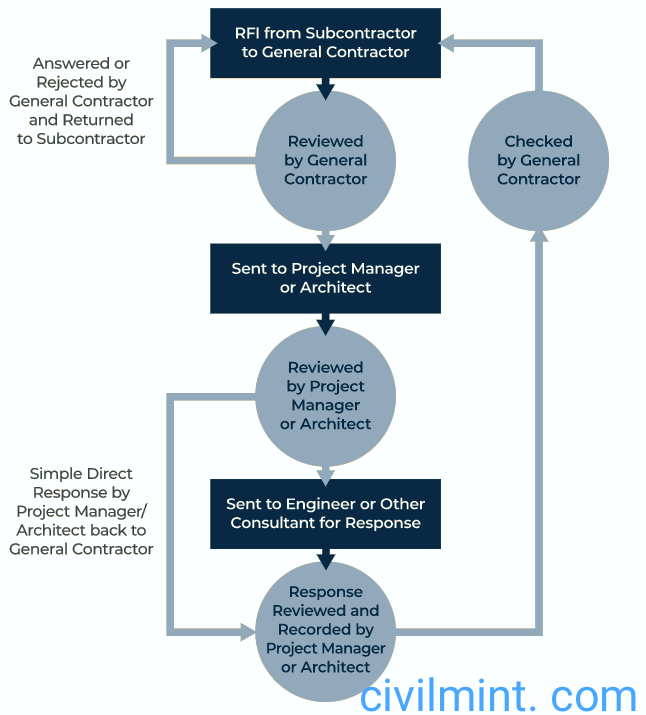In this blog post, I will discuss about Request for Information (RFI). RFI is the integral part of big construction projects. It provides accurate data regarding any task related to the project.
A Request for Information (RFI) is a formal written procedure taken during a construction project to clarify information such as plans, drawings, specifications and contracts.
The primary purpose of RFI is to define missing or ambiguous design data. RFIs often cause delays, conflicts, and legal claims. Therefore, all construction stakeholders need to understand how RFI works and how it can be used efficiently.
This article describes the capabilities of RFI and how it works in construction projects.
Table of Contents
Working Process of RFI
RFI will be asked to seek further details on specific aspects of the project if the plans or documentation provided are insufficient.
In Construction projects, RFI issued by the main contractor to the architect, designer, or engineer to clarify drawings and specifications.

RFI typically occurs in the following scenarios:
- For project details or description
- To suggest a replacement or change
- To identify problems or defects
RFI’s timely explanations and complete responses ensure construction work is planned and executed on time and on budget. If the response is found to be incomplete by the contractor, the RFI will be resubmitted for further clarification.
Roles of RFI in a Construction Projects
There are various roles of RFI in a construction project. Here, I have discussed some key functions of RFI.
- Design Clarification: A Design Clarification RFI is requested when the design information provided is unclear or conflicting.
- Alternate Materials: If a particular material is unavailable, unaffordable or unsuitable, his RFI of an alternate material will be requested.
- Identification of Construction Problems: RFI is provided as a solution to construction problems caused by location issues or conflicting information.
- Confirmation of contract terms: RFIs are provided to understand the details of the contract in terms of schedule, budget, etc.
Advantages of RFI
- The RFI process provides information in a formal and structured way.
- RFI ensures that the project is executed according to the agreed program and budget.
- This mode identifies information gaps between contractors and requesters.
- Early RFI gives customers early warning of project concerns. This helps reduce project delays and unexpected costs.
Conclusion
RFI is an integral part of any construction project. The entire process takes time and requires a lot of administrative work.
RFI documents require a series of documents and feedback rounds among stakeholders to resolve clarifications raised and keep the project on track.
Finally, RFIs are considered valuable and help gather insights on current and future construction projects.
